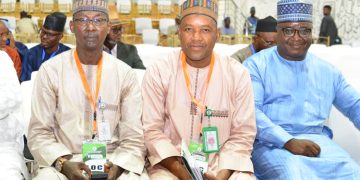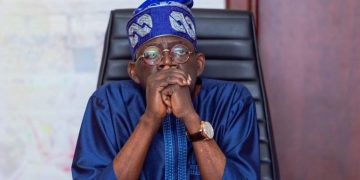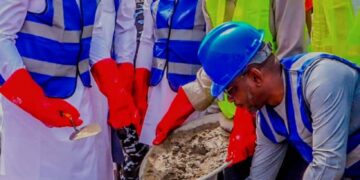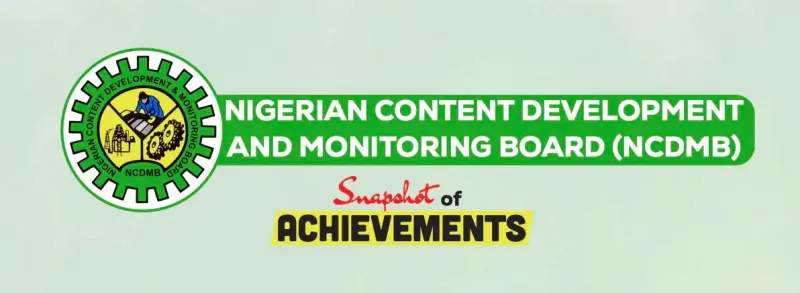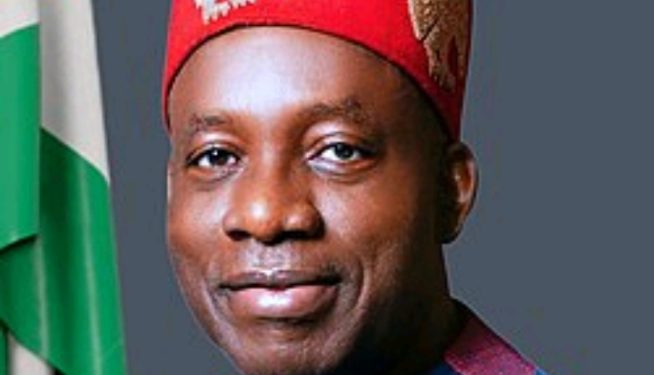Enugwu-Agidi, Nigeria Across Africa, land represents more than property. It is history, heritage, livelihood, and identity. Yet, in community after community, residents are finding themselves displaced, not by foreign multinationals or colonial legacies, but by those entrusted to lead them.
That is the bitter reality in Enugwu-Agidi, a once-peaceful town in Anambra State’s Njikoka Local Government Area, where villagers accuse their President-General, Hon. Chukwuebuka Onuorah, of turning ancestral land into personal profit. Allegations of land grabbing, intimidation, abuse of office, and the erosion of communal governance have sparked unprecedented protests and a plea for help that now stretches beyond Nigeria’s borders.
As international human rights advocate Daniel Okonkwo interviewed some stakeholders, these were the echoes and cries from the villagers. “He Built His House on My Land”
In 2018, Chief Sampson Anaso, an elderly farmer, was forced off his farmland. Armed thugs and hired security, he claims, stood behind the community leader who seized three plots and erected his personal residence there.
“No compensation, no negotiation. He built his house there, and that is where he lives till today,” Anaso told protesters. “I have written petitions to every authority, but nothing has been done. I only want my land back.”
His story is not an isolated grievance but part of a broader pattern villagers describe as systematic dispossession across Anambra State.
High Chief Vincent Onyekwelu, a titled leader, accuses the PG of dismantling Enugwu-Agidi’s traditional governance structures and powers that, by law, rest with the Commissioner for Local Government, Chieftaincy, and Community Affairs. According to Onyekwelu, Onuorah has no authority to force out duly elected village heads.
Instead, he allegedly installed loyalist “parallel leaders” in Normu, Iruobieli, and Achalla, using thugs and security operatives to enforce his dominance.
Chief Onyekwelu further claims that Onuorah’s land sales are not merely personal but political:
“All our ancestral lands, Ebuka sells them for political favour. He drives exotic SUVs. I call on the EFCC to probe his source of wealth.”
Even funerals, a sacred cultural rite, have reportedly been disrupted. In Aguevi, mourners say Onuorah’s loyalists stormed a burial, sowing chaos.
Village leaders Chief Nathan Ibegbunam Okoye (Etiti) and Mr. Peter Onuekwusi (Iruobieli) describe the community as living under intimidation. Lands have allegedly been sold to multiple buyers, sparking disputes, while residents are too afraid to farm.
“We no longer feel safe. Our lands are gone. Our rights are gone. Even to bury our dead is a struggle,” one protester told reporters.
For Mr. Johnbosco Nkem Ementa of the Enugwu-Agidi Brotherly Union, the crisis has spiraled into food insecurity and deepening poverty:
“For three years, villagers have not been able to farm freely. People are chased away from communal land. It is destroying our economy and pushing young men into crime.”
The protests have drawn the attention of Anambra’s authorities, but responses remain hesitant. If the Anambra State government and Nigerian authorities continue to stay silent, villagers warn, the international community will be compelled to intervene to ensure that no one is denied their human rights.
Anambra’s Commissioner for Information admitted he was unaware but promised to investigate, vowing that if allegations are proven, “appropriate measures” will follow.
Commissioner for Local Government, Hon. Tony Collins Nwabunwanne, acknowledged the complaints but admitted that each attempt to suspend the PG has been blocked by influential stakeholders, many of whom are accused of benefitting from the disputed land sales.
Critics allege that Onuorah enjoys protection from high-profile state officials, a claim the commissioner denied. To prove otherwise, residents await the government’s immediate response.
On the streets, residents carried placards reading: “Ebuka Onuorah Must Go,” “Soludo Save Us,” “Stop Land Grabbing,” and “Vote of No Confidence.”
Their demands are clear:
Immediate removal of Mr. Onuorah as President-General of Enugwu-Agidi.
Independent investigation by the EFCC and the police.
State and federal intervention to restore land rights and the rule of law.
The turmoil in Enugwu-Agidi reflects a wider African challenge. Across the continent, land grabbing has displaced millions—from Ethiopia’s Gambella region to Kenya’s Mau Forest. In Nigeria, communal clashes over land have fueled violence from the Middle Belt to the Southeast. The Anambra State government must act now to prevent a ticking time bomb.
Experts argue that weak governance, corruption, and political patronage networks enable local elites, not just foreign investors, to exploit vulnerable communities.
“Enugwu-Agidi is a textbook case of internal land colonialism,” a human rights observer in Abuja noted. “The same patterns of dispossession, intimidation, and complicity that we see in international land grabs are happening here, but led by local power brokers.”
As elections loom, the Enugwu-Agidi crisis tests the credibility of Anambra State’s governance. Governor Chukwuma Soludo, praised internationally for reformist rhetoric, now faces a grassroots rebellion demanding accountability.
At stake are not just ancestral lands but the very principles of justice, human rights, and community dignity.
For now, Enugwu-Agidi remains defiant. Its people, young and old, insist that silence is no longer an option.
As one placard declared: “Our Land, Our Heritage — Not for Sale.”
Whether Nigeria’s leaders will listen remains uncertain. But the voices of Enugwu-Agidi, once confined to a local struggle, are now echoing across the wider debate on land rights and governance in Africa.











